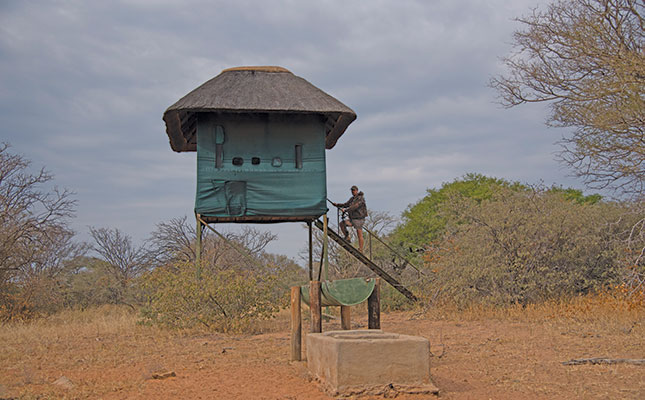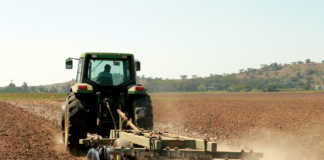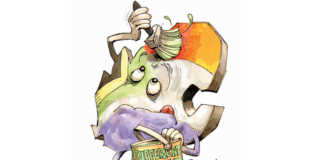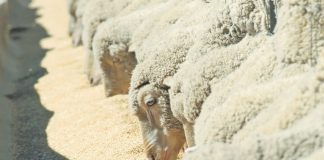
Photo: Pieter Demspey
The South African game and wildlife ranching industry should be proud about the conservation successes it has achieved on private land.
So says Willem Frost of Matlabas Game Hunters, who has been farming game on Goedgedacht close to the Matlabas River in the Lephalale district in Limpopo since 1991.
Over the last 30 years, Frost has expanded his operation to include a large variety of game in his effort to build and maintain what he calls the “effective functioning of the ecosystem”.
“Conservation is not only about the welfare of specific animals,” he explains.
When Frost first entered the industry, there were only a few antelope running on the 2 500ha farm, but it has now been populated with buffalo, giraffe, zebra, waterbuck, red hartebeest, blue wildebeest, kudu, eland, oryx (Oryx gazella), nyala and small game such as warthog and duiker.
Frost explains that he only keeps animals that historically appeared in the area, as he wants to keep the ecosystem as natural as possible. This approach also entails that the animals are not kept in separate camps, but rather run extensively.
Veld management
The farm is situated in the bushveld. As it is close to the Kalahari, the soil tends to be sandy. The farm receives an average of 420mm of rain every year; however, during the last three years, the rainfall was far below average.
The animals graze mostly on natural sweetveld, and there are no planted pastures on the farm. The farm also has a variety of thorn trees and around 10 watering points.
Frost provides the animals with a winter lick. During drought or when the veld’s condition is poor, he provides additional feed, such as lucerne.
The veld’s carrying capacity is 11ha/ LSU. The farm is currently stocked at around 90% of capacity, but Frost says he maintains a good balance between grazers, browsers and mixed eaters.
Selection and breeding
Frost’s primary business is trophy hunting. When buying new bulls, Frost therefore looks for good genetics, but this doesn’t necessarily mean selecting only the most expensive or biggest animals.
“There is a misconception that international hunters only want their names in the record books. The hunting experience is about more than just the size of the trophy.
“Because we practise extensive game farming in which the animals are free-roaming, and natural selection takes place, we have to ensure that there are enough good-quality breeding bulls introduced into the system.”
Female animals are hunted by subsistence or biltong hunters. Frost says that from time to time, he brings in new females to grow the genetic pool of his animals.
While intensive breeding for horn length represents an important segment of the market, Frost believes that maintaining the integrity of the genetic diversity of his game herds is more important than chasing horn length.
Intensive practices
Frost’s decision to focus on international hunters has allowed him to practise extensive game farming as these hunters are not interested in hunting in small, intensively stocked game camps, he says.
“There is big opposition from within the industry against ‘unnatural’ game farming practices, such as intensive breeding for horn length and other morphological deviations,” he says.
“Ultimately, for the hunting industry to survive, we have to convince the world of the advantages of hunting as an instrument of, or a means to achieve, conservation through sustainable use of our resources.”
Frost says the hunting industry offers numerous advantages for conservation and socio-economic stability, especially for rural areas.
For example, in South Africa, more land is dedicated to conservation by private owners than the combined surface area of national parks.
In addition, he says, the hunting industry provides jobs and other economic gains for those in rural areas, and plays an important role in the fight against poaching.
Unlocking the local venison market
Like most businesses, his operation also goes through periods that are more profitable than others, he says.
“Some years back, cattle farmers here were going through a tough time, but it was going well for the game industry. Last year, however, has been a disaster for game farmers because of the COVID-19 lockdown, which basically put a stop to all hunting activities for several months. However, over the long term, game farming is mostly profitable in the semi-arid bushveld area.”
One of the key challenges for the game industry is unlocking the local value chain and market for venison on a large scale. At current price levels this is not possible, says Frost.
Even so, he believes game farmers should prepare themselves for the likelihood that the industry will come under even more pressure to provide venison at more affordable prices if they want to see a significant increase in demand.
While predation by jackal, caracal and brown hyena, as well as leopard and cheetah, is another challenge Frost faces, he says he has learnt that the best solution to this problem is to try to live in harmony with these predators.
“We have a lot of impala on the farm that [act] as a source of food for the predators, but this is not a complete solution to the problem.”
To maintain a sustainable balance between predators and prey, Frost may shoot predators when necessary.
Frost says that his ultimate vision is to provide local and international hunting
clients with an authentic product and experience that not only matches their expectations, but also adds to the reputation of the South African game and hunting industry as an ecologically and ethically responsible business.
Email Willem Frost at [email protected].











